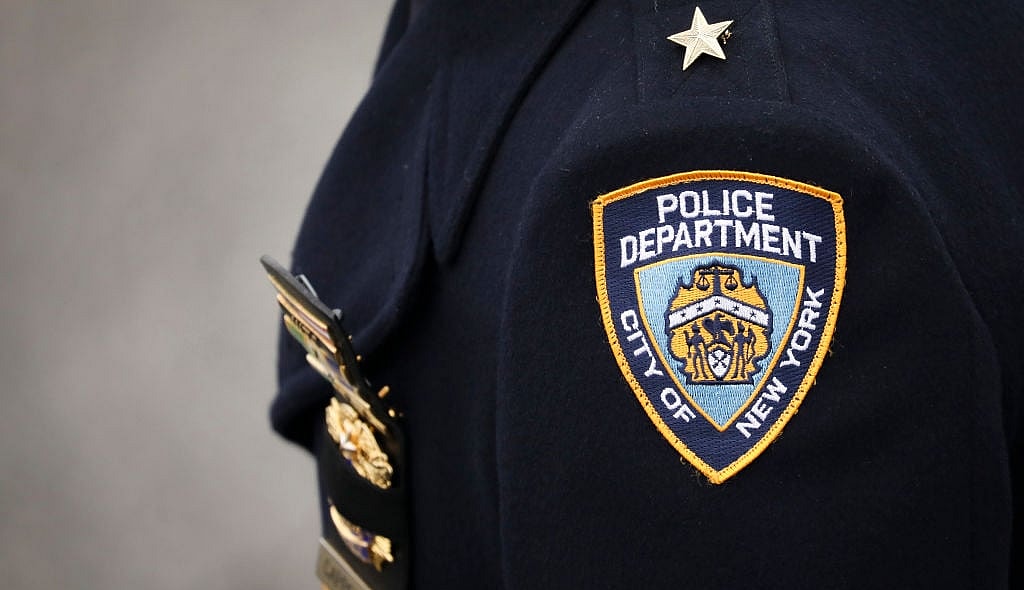After doctors diagnosed Lt. Yvan Pierre-Louis with COVID-19 in late March, the NYPD officer would go on to spend nearly six months under medical supervision at the hospital, 168 days to be exact.
For most of his stay, a ventilator helped keep him alive. But just in time for his 59th birthday, Pierre-Louis was cleared and released back to the comforts of his home in Hempstead, New York, Newsday reports. Family and friends made sure he had a celebration fit for a king. Dozens of people lined the sidewalks outside his house on Ingraham Boulevard and cheered at his arrival as trumpeters played “The Battle Hymn of the Republic.”
His loved ones dressed in white and waved flags of Haiti, his birthplace.
Read More: Drug shows promise in 1st largely minority COVID-19 study, company says
“He got a second chance in life,” said Capt. Garfield McLeod, Pierre-Louis’ commanding officer. “At this point, he needs to just relax and enjoy life.”
In May, while he was in a coma, Pierre-Louis’ 86-year-old mother, Maria Lina Pierre-Louis, died of COVID-19.
The were times when his commanding officer doubted he would pull through. “We definitely thought he wasn’t going to make it,” said McLeod. “It’s breathtaking to say the least. It’s a miracle for us.”
Pierre-Louis’ daughter Diane Latham, however, never lost faith.
“There were some scary moments. But in my heart, I always believed that he was going to be OK,” Latham said. “That’s why I kept on advocating … and pushing. I wanted to leave nothing on the table because we didn’t want to give up.”
Pierre-Louis’ family said he was first admitted to NYU Winthrop Hospital in Mineola on March 28. That’s when he was placed on a ventilator. They say his condition didn’t get better until he was transferred in May to the hospital at the University of Pennsylvania in Philadelphia.
Medical professionals suggest people who have been in direct contact with someone who has tested positive for COVID-19 to get tested themselves.
There are three broad categories of coronavirus tests in the U.S. Two diagnose whether you have an active infection, and a third indicates if you previously had the virus.
Here’s how they work:
GENETIC TESTS
Most tests look for bits of the virus’ genetic material, and require a nasal swab that is taken by a health professional and then sent to a lab. This is considered the most accurate way to diagnose an infection, but it’s not perfect: The swab has to get a good enough sample so any virus can be detected.
These tests usually take hours to process at the lab so you likely won’t get results back for at least a day, though a handful of rapid tests take about 15 minutes on site. Other genetic tests use saliva, instead of a swab.
ANTIGEN TESTS
A newer type of test looks for proteins found on the surface of the coronavirus, rather than the virus itself. These antigen tests are just hitting the market, and experts hope they’ll help expand testing and speed up results.
Antigen tests aren’t as accurate as genetic tests, but are cheaper, faster and require less specialized laboratory equipment. They still require a nasal swab by a health professional.
A recently approved test from Abbott Laboratories takes 15 minutes and can be performed at schools, offices and other locations.
ANTIBODY TESTS
Antibody tests look for proteins that the body makes to fight off infections in a patient’s blood sample. Antibodies are a sign that a person previously had COVID-19.
Scientists don’t yet know if antibodies protect people from another infection, or how long that protection might last. So antibody tests are mostly useful for researchers measuring what portion of the population was infected.
Pierre-Louis told Newsday “I feel blessed. From no hope to hope, that was a lot.”
At the police department where he works, 5,875 officers and civilian staffers have reportedly tested positive for COVID-19. The NYPD says more than 45 of them have died.
Have you subscribed to theGrio’s new podcast “Dear Culture”? Download our newest episodes now!


